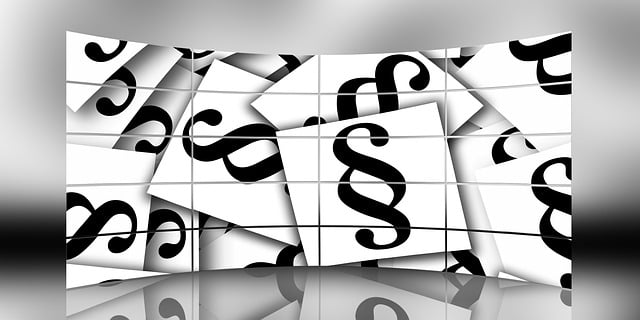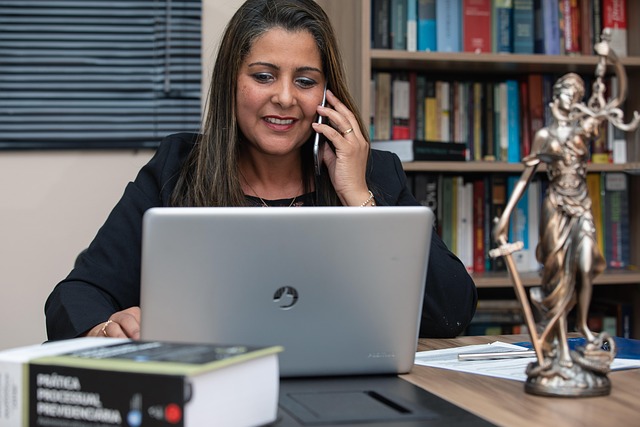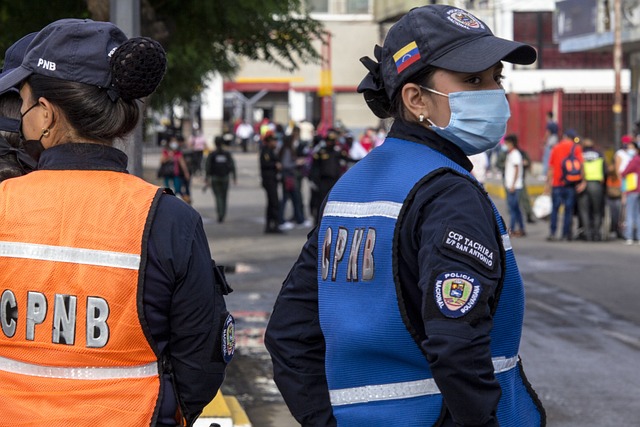In the face of increasing mail wire fraud, understanding common tactics like impersonation is crucial. Legal professionals play a vital role in exposing fraud by effectively contesting witness credibility during trials. Key strategies include fact-checking, verifying communications, and cross-examining witnesses to reveal inconsistencies or biases. Cross-examination, coupled with thorough preparation, aims to sow doubt about witness honesty, especially in complex financial cases. By scrutinizing motivations, biases, and prior statements, lawyers can weaken witness reliability, ultimately protecting clients from false accusations. Strategies to Contest Witness Credibility in Trials have proven successful in securing favorable outcomes, emphasizing the importance of strategic questioning for a clearer understanding of the truth.
Mail wire fraud, a sophisticated form of cybercrime, involves manipulating individuals through deceptive communication to transfer funds or steal sensitive data. Understanding common schemes and identifying red flags are crucial steps in prevention. This article explores effective strategies to contest witness credibility in trials, focusing on cross-examination techniques and legal tactics to discredit false testimonies. By examining real-world case studies, we provide valuable insights into successfully challenging witnesses’ veracity, enhancing your arsenal of defenses against mail wire fraud.
- Understanding Mail Wire Fraud: Common Schemes and Tactics
- Identifying Red Flags: Recognizing Potential Witness Credibility Issues
- Cross-Examination Techniques to Challenge Testimony
- Legal Strategies for Discrediting Witnesses in Court
- Case Studies: Success Stories in Contesting Witness Credibility
Understanding Mail Wire Fraud: Common Schemes and Tactics

Mail wire fraud has become a prevalent challenge in today’s digital age, where criminals exploit advanced communication systems to execute sophisticated scams. Understanding these schemes is the first step towards safeguarding oneself and one’s respective business. Common tactics often involve impersonation, where fraudsters pose as trusted entities like banks or government agencies, luring victims into disclosing sensitive financial information. Another strategy is the use of urgent requests, tricking individuals into making hasty decisions without proper verification.
To contest witness credibility in trials related to mail wire fraud, effective strategies are essential. A robust general criminal defense may involve thorough fact-checking and verifying the authenticity of communications. Cross-examining witnesses about their knowledge and involvement can reveal inconsistencies or motivations to lie. An unprecedented track record of successfully exposing fraudulent activities through meticulous investigation and legal tactics demonstrates the importance of a proactive approach in protecting against such crimes, ensuring the integrity of respective businesses and individuals.
Identifying Red Flags: Recognizing Potential Witness Credibility Issues

Recognizing potential witness credibility issues is a crucial strategy to contest witness veracity in trials, especially in cases like mail wire frauds where evidence can be manipulated or false testimonies offered. Legal professionals must be adept at identifying red flags that could cast doubt on a witness’s reliability. These include inconsistent statements, undisclosed biases, lack of personal knowledge regarding the facts at hand, and financial incentives to testify in a particular manner. For instance, if a witness stands to gain monetarily from the outcome, their objectivity might be compromised.
When dealing with white-collar and economic crimes, where schemes can be intricate, it’s essential to scrutinize every aspect of a witness’s testimony. Strategies to contest credibility may involve cross-examining witnesses about prior statements, exposing contradictions, or highlighting inconsistencies in their recollections. By employing these tactics, legal representatives can effectively protect their clients from false accusations and ensure a more accurate presentation of the facts, ultimately avoiding indictment for offenses they did not commit.
Cross-Examination Techniques to Challenge Testimony

Cross-examination is a powerful tool to challenge the credibility of witnesses, particularly crucial in cases involving white collar and economic crimes where complex financial transactions can be at play. Experienced attorneys employ various strategies to test witness accounts. They may question the reliability of memories, probe for inconsistencies in prior statements, or expose biases and interests that could influence testimony. By skillfully examining a witness, lawyers aim to sow seeds of doubt in the jury’s mind about their honesty and accuracy.
In challenging testimony, it’s not uncommon for attorneys to delve into the details of their clients’ backgrounds and experiences, comparing them to those of the witness across the country. This can help reveal potential weaknesses or discrepancies. For instance, examining a witness’s lack of expertise in specific financial matters can undermine their credibility on related topics. These tactics require meticulous preparation and an understanding of both the law and the nuances of the case, ensuring that strategies to contest witness credibility are both effective and ethically sound.
Legal Strategies for Discrediting Witnesses in Court

In legal proceedings involving white-collar and economic crimes, discrediting witnesses is a strategic move to challenge the validity of testimony. Attorneys can employ various tactics to undermine the credibility of witnesses appearing against their clients. One powerful strategy involves scrutinizing witness motivations, biases, and potential reasons for fabrication. By uncovering prior inconsistent statements, conflicts with known facts, or personal interests, defense lawyers can present a compelling case that the witness’s testimony lacks reliability. This approach aims to sow doubt in the jury’s mind, which is crucial for winning challenging defense verdicts.
Moreover, cross-examination plays a pivotal role in exposing weaknesses in witness accounts. Legal professionals may probe for gaps in memory, conflicting recollections, or misrepresentations of events. Presenting alternative explanations or evidence that contradicts the witness’s version can significantly impact their overall believability. Ultimately, these strategies to contest witness credibility in trials are instrumental in avoiding indictment and securing favorable outcomes for individuals accused of non-violent economic crimes.
Case Studies: Success Stories in Contesting Witness Credibility

In the battle for justice, contesting witness credibility is a crucial aspect of any legal strategy. Case studies offer valuable insights into successful defenses where witness reliability was in question. These stories showcase practical Strategies to Contest Witness Credibility in Trials, proving essential for navigating complex cases. Lawyers can learn from these examples how to challenge testimonies effectively throughout all stages of the investigative and enforcement process.
Through meticulous investigation and clever cross-examination techniques, legal professionals have secured winning challenging defense verdicts for both corporate and individual clients. By examining inconsistencies, biases, or lack of personal knowledge, defense teams can undermine witness credibility. These success stories emphasize the art of questioning assumptions, motive, and memory, ultimately leaving juries with a clearer understanding of the truth.
Mail wire fraud remains a significant challenge, but by understanding common schemes, identifying red flags, and employing effective cross-examination techniques, legal professionals can significantly strengthen their defenses. Additionally, leveraging strategic legal approaches tailored for discrediting witnesses in court, as highlighted through compelling case studies, offers valuable insights into navigating these complex cases. Armed with these proven strategies to contest witness credibility in trials, attorneys are better equipped to protect their clients from the ravages of mail wire fraud.






